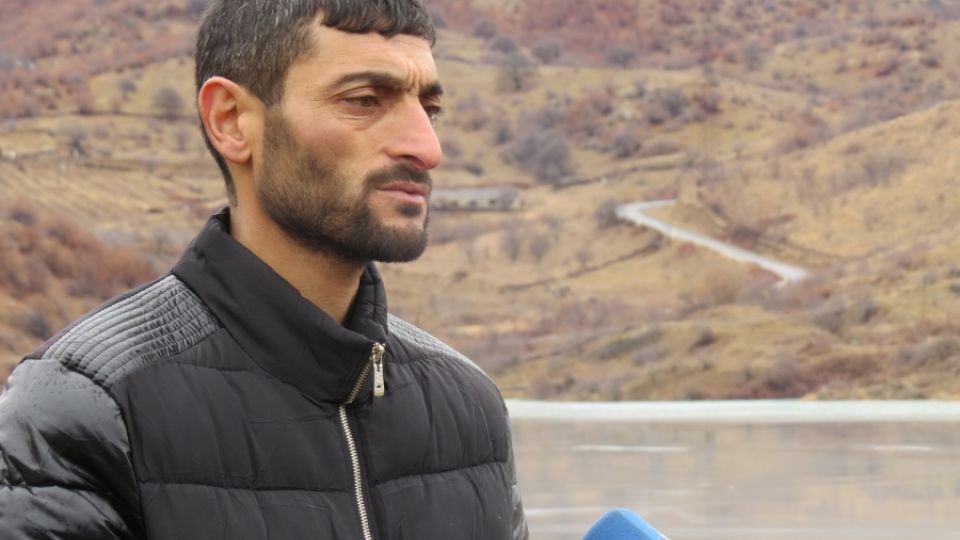One of the families who took part in last year's research of pollution in industrial areas of Armenia, conducted by Arnika and its partner organizations, are about to receive compensation for damages from a mining company AKHTALA CJSC. The Danielyan family lives near the Nahatak tailing dump in the Lori province. The NGO Center for Community Mobilization and Support (CCMS) organized a public demand campaign in their support, which took place on February 25 in the village Mets Ayrum, where they live. The campaign brought an unprecedented success: a mining company AKHTALA CJSC admitted for the first time that its activities impact the environment and offered help with the relocation to the Danielyan family.
When Harutyun Danielyan was buying a house in this area, he had no idea about the health risks caused by living near a tailing dump, or that the tailing dump would resume operation. The Nahatak tailing dump grew so much that it became levelled with the residents' houses. It was right after the tailing dump resumed operation that the family started to experience health issues like headaches, allergies, cardiovascular and digestive problems.
“My son's eyes have been red lately and he's been complaining about headaches. I don't understand how it's even possible at such a young age. He feels so miserable, he can't even do homework. I'm afraid it's serious. All my family members have had health issues for years and we don't have enough money for treatment,“ said Harutyun Danielyan.
The Danielyans' was one of the households from which samples of soil, hair and foodstuff were taken in 2019, as a part of the research conducted by Arnika and CCMS. The analysis results of the samples confirmed high concentrations of heavy metals (including arsenic, cadmium and copper), which exceeds both Armenian and international standards many times. The samples from all areas, including the Danielyans' home, proved that the residents of the impacted areas are at high risk of carcinogenic and non-carcinogenic diseases.
The Danielyans had three basic requirements that they presented at the public demand campaign:
1. Get compensation for housing and land that are not suitable for development, so that they can purchase housing elsewhere and leave the contaminated area.
2. Conduct family health assessments and medical examinations. Provide free full treatment of family members in case of illness.
3. Receive compensation for damages to health.
“This family is in a very difficult position. The soil around their house is unsuitable for any kind of farming. And chronic fatigue negatively impacts the mental well-being of the parents. Their further stay in this house next to a tailing dump is extremely dangerous for the health of adults, and, moreover, their children. These people need to be evacuated to a safe place. Harutyn Danielyan's family needs to be compensated for the house they can't live in, for the soil they can't use and for their damaged health. Those who are responsible for this damage must be punished. Also, measures need to be taken to improve the overall situation in the village,“ said Oleg Dulgaryan, Head of the CCMS, about the Danielyans' situation.
The civic activism brought an unprecedented success: Harutyun Danielyan confirmed that a representative from the mining company Akhtala CJSC started a dialogue with him and the company is now ready to offer the family a new apartment in the same village, which is located further away from the tailing dump. This information was confirmed by the company representative Gagik Shahnazaryan.
„It's very positive that Akhtala CJSC is ready to offer compensation to the Danielyans, but we mustn't forget that they and other families living in the impacted area will continue to have health issues. It's necessary to continue the research on the industrial impact on health. CCMS will continue to support the residents of Mets Ayrum and Chochkan villages to defend their rights, even in court. It's also important to hold our government accountable to achieve systematic change,“ added Oleg Dulgaryan.
Our activities are funded by the Ministry of Foreign Affairs of the Czech Republic from the Transition Promotion Program.








